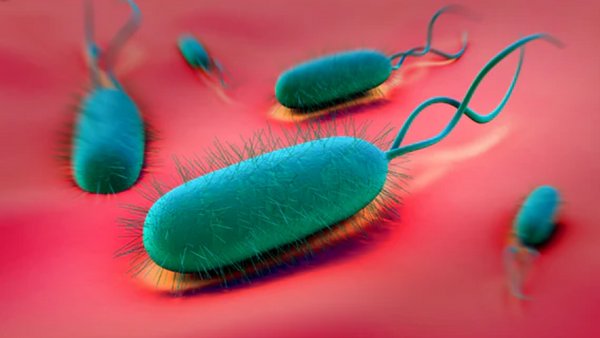Triglycerides are also called blood lipid levels and are an important marker for cardiovascular disease. Elevated triglycerides are also referred to as hypertriglyceridemia.
Triglycerides are produced in fat metabolism and increased triglycerides are caused by impaired fat and sugar metabolism.
The primary cause of elevated triglycerides is insulin resistance. Insulin resistance leads to what is known as metabolic syndrome. Metabolic syndrome is not only characterized by elevated triglycerides, but is also accompanied by other symptoms:
- High blood pressure: systolic >130 mmHg, diastolic >80 mmHg
- Increased waist circumference: > 102 cm for men, > 88 cm for women
- Low HDL cholesterol: < 40 mg/dl in men, < 50 mg/dl in women
- Elevated fasting blood sugar (late symptom): > 100 mg/dl
The triglyceride/HDL cholesterol ratio is also crucial. A TG/HDL ratio > 3 is an indicator of insulin resistance.
Diet plays an important role in lowering triglycerides. It is important to keep blood sugar as stable as possible and to avoid blood sugar spikes after meals. This helps to reduce insulin output, which counteracts insulin resistance . Reducing sugar and white flour is particularly important.
Micronutrients can also help lower triglycerides.

magnesium
Magnesium has important functions in fat metabolism and is involved in many enzymatic reactions. Magnesium is easily lacking in the diet and magnesium levels are particularly low in people with elevated triglycerides.
In one study, magnesium supplementation was able to lower triglycerides in diabetics. [1]
Vitamin D
A vitamin D deficiency is strongly associated with insulin resistance and appears to increase insulin resistance. Vitamin D deficiency is very common in Germany and people with insulin resistance and elevated triglycerides should pay particular attention to ensuring they have a good supply of vitamin D.
Omega-3
Omega-3 fatty acids appear to promote the breakdown of triglycerides. Studies show that taking omega-3 can lower triglycerides. The omega-3 fatty acid eicosapentaenoic acid (EPA) is particularly effective in this regard. [2]
In addition, omega-3 fatty acids have anti-inflammatory effects and can therefore probably counteract secondary diseases caused by high triglyceride levels.
By the way , omega-3 fatty acids do not lower total cholesterol ; they can even increase it. However, experts agree that total cholesterol is not a useful indicator of cardiovascular health. Triglycerides are far more important in this regard.
The German Society of Cardiology (DGK) recommends consuming 1 g of omega-3 fatty acids per day if triglycerides are elevated.
Niacin
Niacin ( vitamin B3 ) appears to be able to inhibit the production of triglycerides. Vitamin B3 can also increase HDL cholesterol, which has a vascular-protective effect.
Studies suggest that high doses of niacin may lower triglycerides. [3] However, this needs to be confirmed by further studies.
Vitamin C
Vitamin C is important for lipid metabolism and promotes the removal of triglycerides from the blood. In people with lipid metabolism disorders and vitamin C deficiency, taking vitamin C can lower triglycerides. [4]
L-Carnitine
L-carnitine has important functions in fat metabolism: it is needed for the transport of fatty acids into the mitochondria. It also counteracts insulin resistance. Since elevated triglycerides are a classic feature of insulin resistance, it is not surprising that L-carnitine can lower triglycerides, as some studies confirm. [5]
Curcumin
Curcumin, the active ingredient in turmeric root, also supports fat metabolism. In some studies with diabetes patients and people with metabolic syndrome, curcumin was able to lower triglycerides. However, the study results are not clear. This could be because curcumin does not have good bioavailability and is often not well absorbed. 
Conclusion: Nutrients are important for fat metabolism
Many nutrients play an important role in fat metabolism. People with insulin resistance and elevated triglycerides should pay particular attention to ensuring they have a good supply of these nutrients.
[1] https://pubmed.ncbi.nlm.nih.gov/32468224/
[2] https://pubmed.ncbi.nlm.nih.gov/29397253/
[3] https://pubmed.ncbi.nlm.nih.gov/22085343/

















